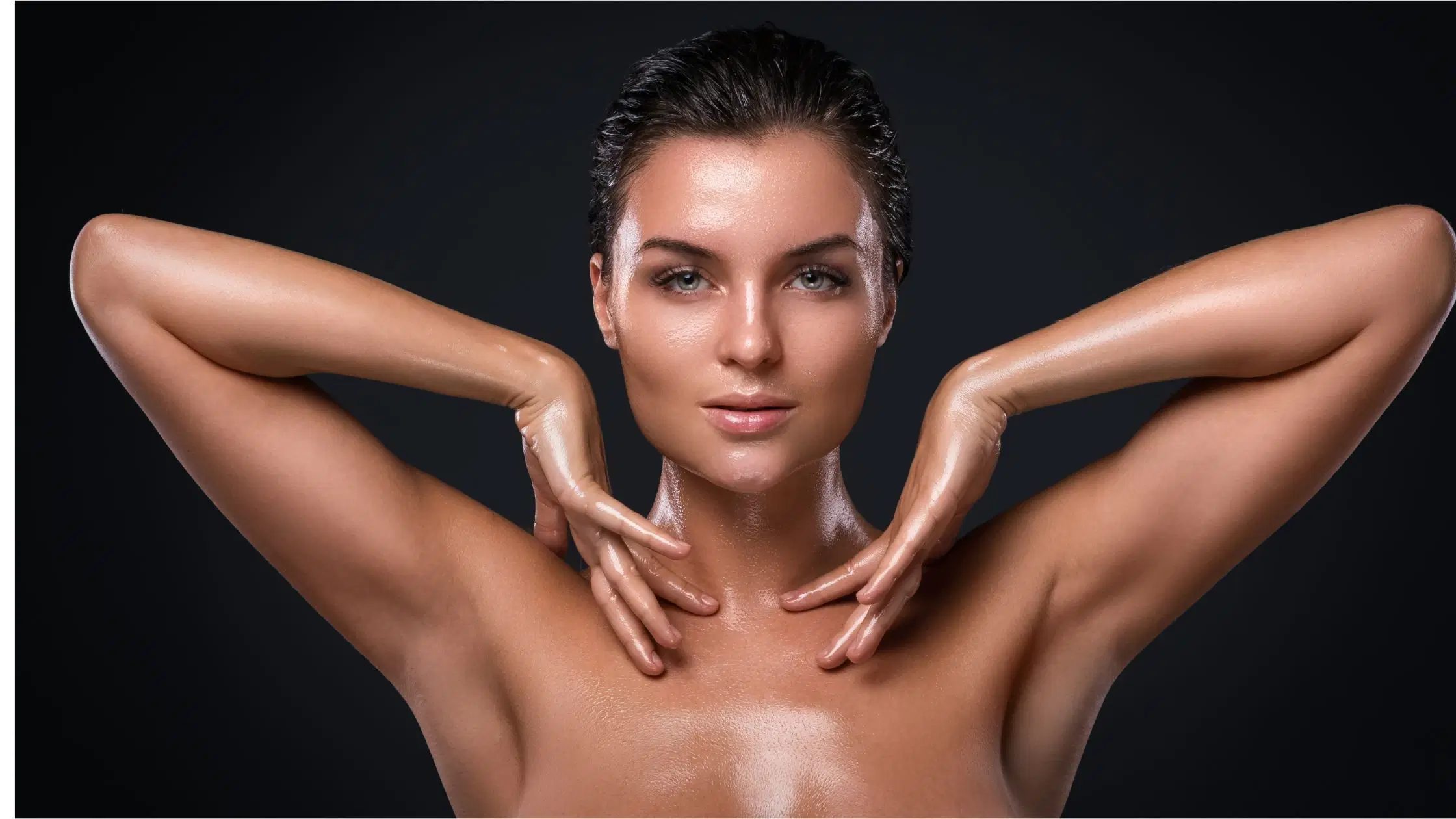
Beauty & Skincare
•04 min read
-9872eb55-9af0-4022-8644-bd8f05e8333e.png&w=3840&q=75)
Face oils are often misunderstood when it comes to oily skin. Many assume that adding oil to an already oily complexion will worsen the issue, but the truth is far different. In this ultimate guide, you'll learn how the right face oil can balance hydration and oil control, offering you a clearer pathway to healthier, even skin.
It may sound counterintuitive, but face oils can help regulate sebum production and balance the skin's natural moisture. These lightweight solutions work by mimicking your skin’s own oils, which means they can actually signal your skin to produce less excess oil. By opting for a lightweight facial oil, you support your skin’s natural barrier while keeping acne-prone skin under control. With properties that are anti-inflammatory and antimicrobial, non-greasy face oil options help calm irritation and reduce the appearance of pores.
Some oils are especially beneficial when chosen for oily or acne-prone skin. For example, natural face oil for oily skin like jojoba or grapeseed oil not only hydrates but can also act as an oil control skincare ingredient, maintaining balance without adding that unwanted shine.
Choosing the right face oil can transform your skincare routine. Focus on key ingredients that are specifically tailored for oily skin. Look for non-greasy options such as grapeseed, rosehip, and tea tree oil, which provide hydration without clogging pores. Hydrating oil for oily skin must come in a lightweight format such as squalane or marula oil that absorbs quickly. For daytime routines, seek a mattifying facial oil like jojoba or argan oil that leaves a matte finish, ideal for balancing face oil needs.
Remember, heavy oils such as coconut and olive oil might cause breakouts or feel greasy. A practical tip for oil control skincare is to perform a patch test to ensure compatibility. Natural oils often have the advantage of purity and minimal additives, which helps maintain the delicate balance of oily skin.
A proper application can make a world of difference. Start your routine with a gentle cleanser to clear away excess oil and impurities. Then, apply 2-3 drops of your chosen non-greasy face oil, pressing it gently into your skin rather than rubbing harshly. This step is important whether you're using a balancing face oil or a lightweight option suitable for oil control skincare.
Layer your skincare effectively by applying face oil after your water-based serums and before heavier creams. This method locks in hydration without overwhelming the skin. During the day, reach for mattifying facial oil to control shine, while at night, a hydrating oil for oily skin can work in tandem with your evening routine to restore moisture and calm any inflammation. Avoid common mistakes like overapplication or skipping mandatory sunscreen after using these oils in the daytime.
-5ba1f1f6-995b-4617-a1ff-43890351cff7.png&w=3840&q=75)
Pro Tip: How Face Oils Can Help Control Acne
Did you know that certain face oils, such as tea tree and rosehip oil, contain natural antibacterial and anti-inflammatory properties? These ingredients not only hydrate oily skin but also help reduce acne and redness. A well-formulated non-greasy face oil can be a secret weapon in your skincare arsenal, especially for those battling acne-prone skin.
When selecting the best face oil for oily skin, consider a variety of options that cater to different needs. There are several natural face oils that offer benefits like high hydration without the heaviness. For example, grapeseed oil is enriched with antioxidants that protect and nourish the skin, while jojoba oil helps regulate sebum production in a gentle, conductive manner. Tea tree oil is another great choice, known for its antibacterial benefits which help in minimizing acne flare-ups.
Another way to enhance your routine is by integrating mattifying facial oils such as argan or marula oil. These naturally sourced oils provide a shine-free finish, making them a popular choice for those looking to maintain a balanced, non-greasy feel throughout the day. Remember that choosing a balancing face oil can be critical in matching your skin’s specific needs, whether you are looking for hydration or oil control skincare solutions.
There are several myths surrounding the use of face oils on oily skin that can hinder your skincare journey. One common myth is that face oils will make oily skin even oilier. In reality, the right lightweight, non-comedogenic face oil can help regulate sebum production and maintain a balanced complexion. Another myth suggests that face oils clog pores, but many options, like those containing squalane or jojoba, are crafted to be non-pore-clogging, supporting a healthy skin barrier.
Some also believe that oily skin does not need extra hydration. However, even oily skin can be dehydrated, and using a hydrating oil for oily skin ensures that your hydration needs are met without compromising on light texture or skin clarity. This guide emphasizes that face oils for acne-prone skin and oily skin alike can provide benefits when used correctly.
Lightweight, non-comedogenic oils like jojoba, grapeseed, and tea tree oil are ideal for oily skin.

Yes, Vitamin C oil can brighten the skin and reduce excess oil production while offering antioxidant protection.
The best face oil depends on your specific skin concerns; for oily skin, balancing and mattifying options like rosehip or argan oil work well.
Absolutely, many face oils for acne-prone skin, such as tea tree and rosehip, have antibacterial properties that help control acne.
Yes, using a mattifying facial oil during the day and a hydrating oil at night can maximize benefits for both oil control and hydration.
Face oils can be a game-changer for oily skin when selected and used correctly. By choosing lightweight, non-greasy options and applying them strategically in your daily regimen, you can enjoy a balanced, hydrated complexion without the greasy aftermath. Embracing oil control skincare through the right natural ingredients not only supports your skin’s health but also enhances overall confidence in your appearance. Explore the transformative benefits of face oils for oily skin and see how they can elevate your skincare routine.